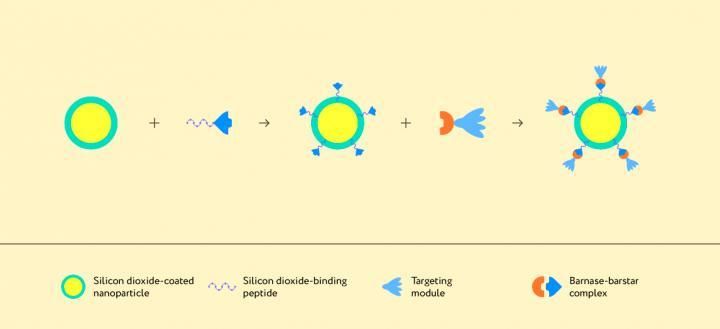Hormone therapy may confer more aggressive properties to prostate tumors
hormone therapy is often given to patients with advanced prostate cancer. While it is true that the treatment prevents growth of the tumour, it also changes its properties. Some of these changes may result in the tumour becoming more aggressive and more liable to form metastases. This is one of the conclusion of a thesis presented at the Sahlgrenska Academy, University of Gothenburg, Sweden.
Hormone therapy has serious side effects and is therefore used only when the tumour has grown too large to be treated in any other way, or when the tumour has spread and formed metastases. The hormone that is given causes the natural production of male sex hormone to fall, and the tumour stops growing. Pain also usually decreases.
"Our results suggest that the tumour properties change following hormone therapy such that the tumours at a later stage can continue to grow and spread in the body. For this reason, it is probably necessary to supplement the hormone therapy in order to compensate for these changes", says pharmacist Karin Jennbacken, author of the thesis.
The results show that patients who have been given hormone therapy have higher levels of the proteins that enable the cancer cells to move through the body and attach to other organs. One of these proteins is known as "N-cadherin", and this protein is present in higher levels in patients who have been given hormone therapy. "We don't have any good treatment alternatives in cases where the tumour returns after hormone therapy, and this means that it is particularly important to study how such tumours are controlled and how they behave. The properties that we have identified may become targets for new anti-metastatic drugs in advanced prostate cancer", says Karin Jennbacken.
Most read news
Topics
Organizations
Other news from the department science

Get the life science industry in your inbox
By submitting this form you agree that LUMITOS AG will send you the newsletter(s) selected above by email. Your data will not be passed on to third parties. Your data will be stored and processed in accordance with our data protection regulations. LUMITOS may contact you by email for the purpose of advertising or market and opinion surveys. You can revoke your consent at any time without giving reasons to LUMITOS AG, Ernst-Augustin-Str. 2, 12489 Berlin, Germany or by e-mail at revoke@lumitos.com with effect for the future. In addition, each email contains a link to unsubscribe from the corresponding newsletter.
Most read news
More news from our other portals
Last viewed contents


















































